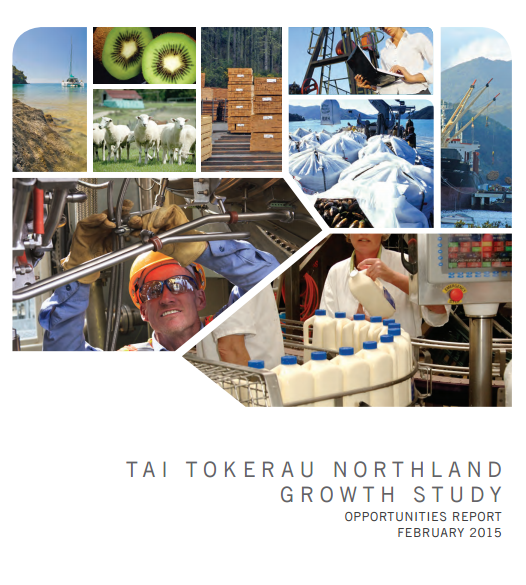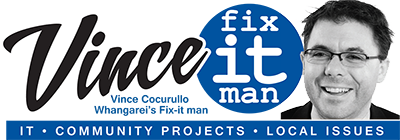Phone Vince on: 021 438 952
Where Next For Northland's Economy?

Recommendations For Boosting Northland’s Economy -
Taking Tai Tokerau From Rags To Riches
Last year’s MBIE report into Northland’s economy, the Tai Tokerau Northland Regional Growth Study report, gave specific recommendations for boosting a region with a sparse population and which often has high unemployment. The report was signed off by Minister for Economic Development Steven Joyce; Minister for Primary Industries Nathan Guy; and Associate Minister for Economic Development Te Ururoa Flavell.
The major industry development and investment ‘opportunities’ recommended in the report (things we currently do, but could do better) are as follows.
INDUSTRY: VISITORS/TOURISM
OPPORTUNITIES: Northland is urged to
-
“Link cultural and natural advantages and create a ‘round trip’ of authentic visitor experiences on both coasts and up to Cape Rēinga”
-
As part of Twin Coast discovery project, Hundertwasser and Wairau Māori Art Centre could bring $3.5m net economic benefit annually and 30 jobs
INDUSTRY: FORESTRY
OPPORTUNITIES:
-
Reconfigure current processing capability, for example through combination of lower-grade processed products and higher end engineered wood
-
Build a saw and pulp mill near Kaikohe/Ngawha because “a large scale facility could generate economic impacts of $35m to $45m in regional GDP and support 440-500 jobs annually.”
-
Develop a new niche industry producing high value native wood products from tōtara
INDUSTRY: DAIRYING
OPPORTUNITIES:
-
Expand productivity initiatives such as Focus Farms and Dairy Push.
-
Change land use to dairy, including on Māori-owned land, if the physical and capital requirements can be met.
-
increase investment in R&D to improve pastures, farming methods and identify new added-value products,
-
Potentially establish an agricultural innovation centre for the region
INDUSTRY: AQUACULTURE
OPPORTUNITIES:
-
Enter the international market for higher value seafood products by developing a kingfish production facility, initially land-based, with potential for sea-based in future. A kingfish farm “could contribute around $14m to GDP and support 150 jobs (direct and indirect) annually once fully established.”
-
Scale up oyster and mussel production “An additional 150 ha of oyster farming and related processing can contribute $14m GDP and support 220 jobs (direct and indirect) annually”
INDUSTRY: MARINE MANUFACTURING
OPPORTUNITIES:
-
Build and service superyachts after procuring “a large scale mobile lift with shared access and establishment of suitable hardstand facilities
INDUSTRY: HORTICULTURE
-
Create a strategic horticulture action plan for Northland
-
Focus on manuka honey, “which has been growing by 30 percent per annum over the last 10 years”
-
There is “opportunity for Māori/iwi/hapū and the [apiculture] industry to work together to increase production of medical/nutraceutical grade mānuka honey and potentially establish a collective vertically integrated honey company and/or brand for the region”
The report also examines ‘Cross-Cutting’ – increasing the skills base and infrastructure of Northland.
EDUCATION OPPORTUNITIES (RECOMMENDATIONS) –
-
grow the scale and value of international education in Northland in order to meet the government’s goal of doubling the value of international education nationally by 2025
-
create skills investment programmes for key industries
-
grow the scale and value of international education in Northland in order to meet the government’s goal of doubling the value of international education nationally by 2025
ROAD AND RAIL:
-
Improve low resilient areas of SH1 freight route and the possible development of alternative freight routes.
DIGITAL CONNECTIVITY: (in which Northland is “falling behind”) –
-
Set up a regional digital office
-
Finalise a digital development strategy to deliver programmes to youth, communities and businesses to showcase the benefits of adoption and stimulate demand, build levels of digital literacy and competence to enable the use of productivity enhancing applications, and position the region to get access to increased investment in broadband roll-out.
WATER SUPPLY:
-
Northland must improve water management and storage because “droughts are common occurrences and are likely to become more frequent into the future”
-
Further investment in understanding, via collaboration, how each catchment can be managed,
-
detailed research on the demand for and supply of water,
-
detailed research on the benefits and costs of different options to improve irrigation and water storage.



